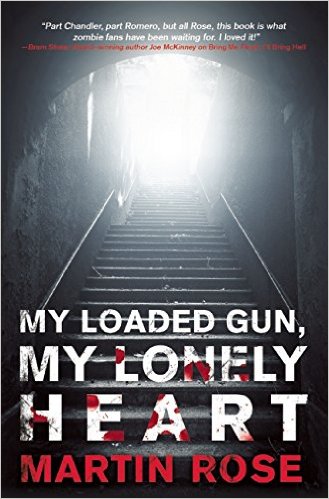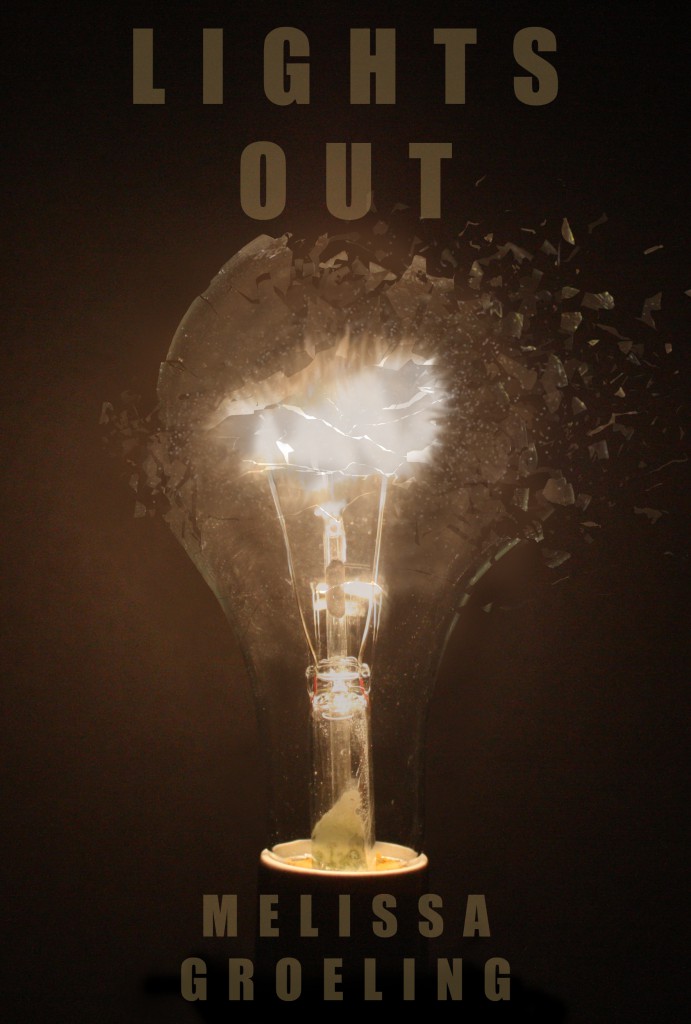This week on The Scariest Part, my guest is Martin Rose, whose latest novel is My Loaded Gun, My Lonely Heart. Here’s the publisher’s description:
Vitus Adamson has a second chance at life now that he’s no longer a zombie. But after killing his brother Jamie, Vitus lands in prison on murder charges. Jamie’s death exposes secret government projects so deep in the black they cannot be seen — without Vitus, that is.
Sprung from jail, the government hires Vitus to clean up Jamie’s messes, but tracking down his brother’s homemade monsters gone rogue is easier said than done. The first of them is a convicted killer assumed to be safely behind bars. However, it appears he is still committing murder through his victim’s dreams. High on Atropine — the drug that once kept him functioning among the living — and lapsing into addiction, Vitus’s grip on reality takes a nasty turn when his own dreams begin slipping sideways.
Vitus’s problems multiply as he deals with his failed friendship with wheelchair-bound officer Geoff Lafferty, his wrecked romance with the town mortician Niko, government agents working for his father, sinister figures lurking in the shadows, and, least of all, the complications of learning how to be human again.
Secret agents, conspiracy theories, broken hearts and lonely souls, the siren song of prescription drugs…in My Loaded Gun, My Lonely Heart, readers are invited to discover life after undeath, where there are no happy endings.
And now, let’s hear what the scariest part was for Martin Rose:
If you ask me what the scariest part of My Loaded Gun, My Lonely Heart is, it’s not the serial killer, who might be haunting the outer edges of half-forgotten nightmares, or the oily Inspector who pulls the strings of human frailty with malevolent, supernatural force, or even the heartless and emotionless Elvedina who dogs Vitus’s every step.
No, what wrings the sweat from me is the cautery.
If you don’t know what a cautery is, it’s an implement designed to burn a wound to sterilize it, staunch bleeding, and help with the healing. Modern day cauteries look so sleek and well designed you could mistake them for pens, and they even come with special tips by which they do their burning. But you haven’t lived until you spend a stint in a veterinarian’s office and on the day the tech calls out sick, they pull you into surgery and plug in a vintage cautery that burns red cherry hot in your hand like a devil’s claw.
I won’t go into the gory details of that surgery — suffice to say that the dog in question will live many happy, healthy years and didn’t feel a thing during his anesthetic — but then, if you’ve ever been in surgery, you probably didn’t feel a thing, either.
The incident stayed with me long after my time at the vet’s office came to an end. The innocuous two-pronged plug revealing the instrument’s outdated age, the minutes ticking by as slowly, the steel rod glows the deep, primal glow of forges, of black smith’s fires, a testament to how brutal medicine truly is — no matter what new and more sterile guises it takes. The healing fire of this most terrible instrument is still, at its base level, an instrument of medieval sensibility. In our modern age, we have forgotten what metal and fire can do in conjunction, the raw power it levers in the world. (Lord knows, my mother, a metalsmith, taught me that.) Our connection to metal and fire reaches deep into an alchemical past, and rings the bell of hidden subconscious. (Like the hot iron shoes forced onto many an evil stepmother in ancient fairy tales, or the vernepator cur, a terrier dog forced to turn a roasting spit by having a red hot coal thrown into the wheel with them to make them run faster.)
The work the cautery does keeps me up at night. It is the manner in which a cautery is utilized beneath the rim of consciousness, unseen during the twilight-sleep of surgery. After all, you don’t receive an itinerary of actions prior to being gassed into unconsciousness. Your hospital bill gives hint to what was done to you, but likely a cautery passed over your flesh and you didn’t flinch, whimper or sigh.
Likewise, Vitus Adamson in My Loaded Gun, My Lonely Heart must spend his twilight hours beneath the glow of a cherry red cautery — the horror is not what happens, as in reality, we see little. It is the hint and the mystery of those unseen moments that churns in the mind and gives rise to suspicion, paranoia and fear. The fear resides in what happens when our attention is focused in the wrong direction and events unfold beneath our level of perception, knowing something was done to you, but not quite what. Fear in the hard choices between uncertainty or death, in giving one’s trust to strangers or monsters, as Vitus must in the moments he is pinned on a gurney, unable to fight back, and tumbling into unconsciousness, trusting that he will make it to the other side, trusting that the cautery will do the work of healing instead of the work of murder.
It is the necessity of the cautery’s sinister application to hurt and heal that terrifies, and renders it the scariest part. I entreat you to feel the burn in My Loaded Gun, My Lonely Heart.
Martin Rose: Website / Facebook / Twitter / Tumblr
My Loaded Gun, My Lonely Heart: Amazon / Barnes & Noble / IndieBound
Martin Rose’s fiction spans genres with work appearing in numerous venues, such as Penumbra and Murky Depths, and various anthologies: Urban Green Man, Handsome Devil, and Ominous Realities. Bring Me Flesh, I’ll Bring Hell, is a horror novel published by Talos in 2014, and has been recognized as one of “Notable Novels of 2014” in Best Horror of the Year, Vol. 7.





